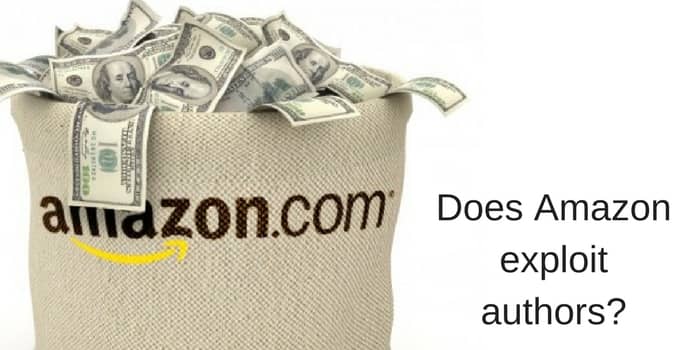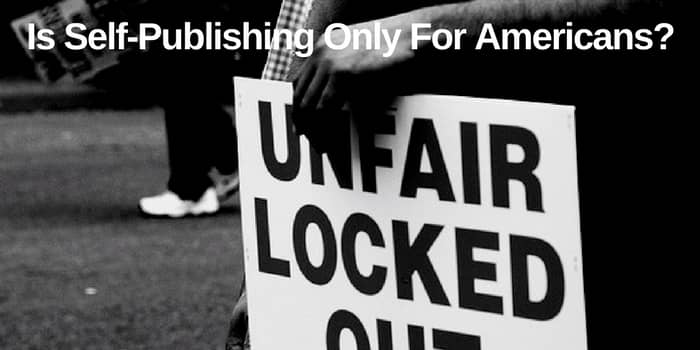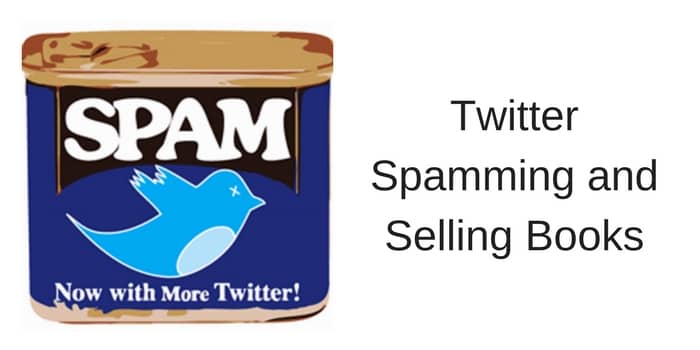
Does Amazon exploit authors?
For self-published authors, Amazon has the annoying habit of giving a little with one hand, and then very soon after, taking away an awful lot more with the other. In the very early days of Kindle Direct Publishing, Amazon gave self-published authors a wonderful new platform to expose and sell their work. Yet soon, after this initial period of ‘absolute bliss‘, when authors made some money, and Amazon filled up their coffers with mountains of ebook content to drive Kindle device sales, Amazon decided to demand exclusivity in return for access to their new ebook marketing tools.
These KDP Select marketing tools, however, turned out to be wolves in sheep’s clothing, as all of them involved lowering the price of ebooks. Five day periods of giving ebooks away for free and countdown deals that lowered the price of ebooks over a period of a week were never designed to increase author earnings. They were designed to sell Kindle devices. Yet, so many self-published authors signed away their rights to sell their ebooks elsewhere, and worse, cheered Amazon for such a wonderful initiative.
Then came Kindle Unlimited, a new subscription service that of course is only available to authors who are exclusively published with Amazon. As the New York Times reports here, Amazon Offers All-You-Can-Eat Books. Authors Turn Up Noses, highlights how Amazon have changed the rules once again, and this time, definitely to the detriment of authors who have signed up for Amazon exclusivity.
There is only one conclusion that I can come to, after witnessing Amazon gradually lower the value of ebooks over the last five years. It is that self-published authors are merely Amazon’s loss-leading search content providers, who have been exploited by Amazon as a means to support not only profitable Kindle device sales but also as an entry point to Amazon as a whole, thus delivering steady customer traffic and sales to Amazon.
Does Amazon exploit authors? Yes.
This, of course, was always the plan.




Amazon has never been in the game for the author’s benefit. That’s why I’ve never signed up for any of their “deals.”
Totally agree with every word. Writers have been used most cunningly by Amazon – appearing to offer them great sales tools while getting them to continually deliver their work exclusively and cheaply to Amazon as marketing tools. Very clever, actually. By the way, I sell far more on B&N and Apple than I ever do on Amazon. Writers who ignore alternative sales opportunities in order play Amazon’s game, do miss out considerably, methinks.
It depends… If Amazon would not have invested in the creation of the Kindle
[ …. Let’s face it B&N would have never done it, they would have been happy with being in charge of the US book market, together with the Big 5]
95% of today’s self-published authors would never have been published,
So, if you so want, Amazon gave everybody a chance. It’s kind of like gold digging in Alaska in the 19th century. Authors decide what tools they bring, who they are working with, who they partner with, what contracts they make, possible long term plans. Plus, how hard they work!
Most indie authors don’t know that before Kindle, publishing 1,000 copies of a regular novel cost about $6,000. Print shops do not print on credit, neither do book binders, cover designers etc… All industry professionals know that publishing a book is risky.
On top of that, these books had to be properly stored, (dry air, etc). Contrary to romantic stories of books stored on garages and attics, doing that was not an option. Book stores did not accept improperly stored copies since the only competition was books published by traditional publishers.
Also, self publishing authors had to pay high end prices for cover designers etc… b/c there were no supporting industries (designers, formatters etc…)
So, yep, Amazon is no saint, BUT 95% of self published authors have to thank them for getting the opportunity to publish whatever they publish.
Naturally, another option would have been that Apple/Steve Jobs would have beaten Amazon in the race for the e-reader. However, I doubt that that would have made things cheaper. Jobs wasn’t known for producing cheap products or cheap platforms.